We collected documents on different topics related to agroecology to enhance the work of small-scale food producers’ organizations and other agroecology and food sovereignty allies.
We display the documents in regards to the 11 pillars of Agroecology (Nyéléni Declaration)
Agroecology has been defined by social movements that gathered in Nyéléni (Mali) in 2015.
The pillars and strategies of Agroecology are fully described in the Nyeleni Declaration.
Reference documents:
The struggle for the right to food and nutrition (FIAN, 2017) – EN ES FR;
Peoples’ Monitoring on the Right to Food and Nutrition – Political Manifesto (FIAN, 2017) – EN ES FR;
Voluntary Guidelines to support the progressive realization of the right to adequate food in the context of the national food security (FAO, 2005) – EN ES FR;
The right to land and other natural resources (FIAN, 2015) – EN ES FR.
Introduction to the work done by civil society organisations (IPC) on food and agriculture global governance within the global institutions: FAO, Committee on World Food Security (CFS), the Civil Society Mechanism (CSM) and the human rights-based approach to food, agriculture and nutrition. Introduction to FAO’s overall strategies (Strategic Objectives, Sustainable Development Goals) and FAO’s partnership policy.
Reference documents:
Voluntary Guidelines to support the progressive realization of the right to adequate food in the context of the national food security (FAO, 2005). EN ES FR
Framework for Action for Food Security and Nutrition in Protracted Crisis (CFS, 2015). EN ES FR
Water for Food Security and Nutrition (CFS 42, 2015). EN ES FR
People’s Manual on the Guidelines on Governance of Land, Fisheries and Forests. A guide for promotion, implementation, monitoring and evaluation. (International Planning Committee for Food Sovereignty -IPC, 2016) http://foodsovereignty.org EN ES FR
Global Strategic Framework for Food Security and Nutrition (FAO, 2016). EN ES FR
“Using the Global Strategic Framework for Food Security and Nutrition to Promote and Defend the People’s Right to Adequate Food” A Manual for Social Movements and Civil Society Organisations (CIDSE, IUF, LVC, FIAN, 2013). EN ES FR
Investing in smallholder agriculture for food security (CFS 40, 2013). EN ES FR
Food Losses and Waste in the Context of Sustainable Food Systems (CFS 41, 2014). EN ES FR
Social protection for food security (CFS 39, 2012). EN ES FR
Connecting smallholders to markets. An analytical guide (CSM, HOTL). EN ES FR
FAO Strategy for Partnerships with Civil Society Organizations (FAO, 2013). EN ES FR
Presentation of FAO works on Agroecology, its normative role, the global knowledge product, the Agroecology Symposiums and FAO Farmer Field School (FFS) initiatives and others experiences.
Reference documents:
Exploration of different ways of building farm autonomy: valuing local knowledge, farmers’ technologies for water and energy management, soil fertility and the multi-functionality of farming (for more information on technological sovereignty, please see: L’Atelier paysan http://www.latelierpaysan.org/, and Farm Hack http://farmhack.org/tools )
Reference documents:
Plaidoyer InPACT : Pour une souveraineté technologique des paysans (2016). FR
Participative organic certification, trust and local rural communities’ development: the Case of Rede Ecovida. Zanasi, C.; Venturi, P.; Setti, M.; Rota, C. (2009). EN
Reference documents:
Agroécologie en pratiques. Guide (2010). Agrisud international. FR
Guía para el sondeo agroecológico de suelos y cultivos CATIE – Centro Agronómico Tropical de Investigación y Enseñanza (2013). ES
Guide technique d’agronomie et d’agro-écologie dans le contexte de la rive-ouest du Lac Alaotra (Madagascar) (AVSF, 2010). FR
Manual di compostaje domestico (Benmagec). ES
Manual de elaboración de productos naturales para la fertilidad y control de plagas y enfermedades (Agruco, 2010). ES
Manual de agricultura urbana (ARVOL, 2012) ES
Producción de Hortalizas Orgnánicas. Manual del Cultivo Biointensivo de Alimentos (Las Cañadas). ES
Suelos saludables, plantas saludables: la evidencia agroecological (Clara I. Nicholls y Miguel A. Altieri (2008). ES
Explore the link between women’s empowerment and food sovereignty, the role of women in transforming food systems.
Reference documents:
Understanding feminism in the peasant struggle – A “popular peasant feminism” (La Via Campesina, 2017). EN ES FR
Miradas del movimiento agroecológico y feminista. (M. Nobre, 2017). ES
Gender Equality and Food Security – Women’s Empowerment as a Tool Against Hunger (De Schutter for ADB, FAO, 2013). EN
Our secret weapon against hunger: gender equality and women’s empowerment (Olivier De Schutter, 2012). EN
The Peasant Women and Men of La Via Campesina Say: Stop Violence Against Women! (La Via Campesina, 2012). EN
‘Gender and the Right to Food’, Report presented to the 22nd Session of the United Nations Human Rights Council (De Schutter for UN, 2012). EN
Women, Land struggles and the reconstruction of the commons (Federici S., 2011). EN
Without women there is no food sovereignty (Vivas Esther). EN
CFS Forum on women’s empowerment in the context of food security and nutrition (CFS, 2017) EN
How to share knowledge amongst food producers? Tools for peasant knowledge recovery, development and dissemination. How to boost our capacity to innovate and to share innovations? The role of agroecology schools (IALA, MST, CAC, Eur. Network) and others initiatives and networks (Agroecologia espora,etc). Basic principles of popular education (horizontal dialogue of knowledge, diálogo de saberes).
Reference documents:
El Movimiento Sin Tierra y la educación popular: la formación humana en diálogo (Rubneuza Leandro de Souza, 2015). ES
Developing a European Agroecology Learning and Training Network (ECVC, 2016). EN
Fossé entre praticiens et militants. In « De la crise alimentaire à la souveraineté alimentaire, le défi des mouvements sociaux » (Eric Holt-Giménez, 2010). EN ES FR
Escuela de Acción Campesina, Universidad rural Paulo Freire. ES
Formación agroecológica IALA (Adriano Muñoz Pérez). ES
- Seed laws that criminalise farmers. Resistance and fightback. (GRAIN LVC, 2015) FR EN ES
- Land Conflicts and the Criminalization of Peasant Movements in Paraguay: The case of marina kue and the ‘curuguaty massacre’ Oakland: Food First & Transnational Institute. (La Vía Campesina and FIAN International, 2014) ES EN
- Backlash and Beyond: The Criminalization of Agrarian Reform and Peasant Response in the Philippines. (Franco, J., Carranza, D., 2014. EN
Role of the territory and the local management of food systems for food sovereignty. Introduction to the Bio-district. Local policies and sustainable management of natural resources. Urban-rural linkages and farmers-consumers linkages.
Reference documents:
Bio-distretti: istruzioni per l’uso. In AIAB Bio agricultura (Salvatore Basile, 2014). IT, EN, ES, FR
A People’s Food Policy. Transforming our food system (UK). (2017) EN
- Food Sovereignty Agenda of Transnational Rural Social Movements in the UN Global Governance (Mauro Conti, 2016) EN
- Food sovereignty Turning the system upside down (GRAIN, 2015) EN, FR, ES
- Towards food sovereignty: interrogating peasant voice in the United Nations Committee on World Food Security. Journal of Peasant Studies, volume 42 (1): 73-95 (Brem-Wilson, J. 2015) EN
Farmer’s organisations as social actors for change. How to get stronger and influence local policies? How to build a social control on natural resources?
Reference documents:
Organizing for Food Systems Change (Anderson, C.R., Silivay. J. and K. Lobe, 2017)
Towards Food Sovereignty. Reclaiming autonomous food systems. (Pimbert, M., 2009)
- Particularly Chapter 4. Local Organisations at the Heart of Food Sovereignty.
- Particularly Chapter 5. Reclaiming Citizenship, Empowering Civil Society in Policy-making.
- Food and Climate Change: the forgotten link (Grain, 2011). EN IT ES FR
- From Uniformity to diversity. SECTION 1 What are the outcomes of industrial agriculture and diversified agroecological systems? (IPES-Food, 2016) FR EN
- Migration and agricultural labour force in Italy and Europe. The agricultural migrant labourer caught between exploitation and irregularity: stories from Southern Europe (Stefano Mori for Centro Internazionale Crocevia, 2016) EN
- Chapter 1-2- 3. The making of multiple crises in food, agriculture and environment in Towards Food Sovereignty. Reclaiming autonomous food systems pp.21-38 (Pimbert M., 2009) EN
Knowledge and power relations, people’s access to knowledge and know-how as a political issue.
Reference documents:
Transforming Knowledge and Ways of Knowing for Food Sovereignty. Chapter 7 in Towards Food Sovereignty. Reclaiming autonomous food systems (Pimbert M., 2006). EN
The video film – Imagining Research for Food Sovereignty – of St. Ulrich Workshop on Democratising Agricultural Research for Food Sovereignty and Peasant Agrarian Cultures. Available in EN at: http://www.excludedvoices.org/st-ulrich-workshop-democratising-agricultural-research-food-sovereignty-and-peasant-agrarian-culture EN
Intellectual property rights, criminalization of farmers’ seeds, international treaties and regulations, seeds, international actors and roles (CGIAR, FAO), institutional lock-ins, farmer’s seeds networks, seeds selection and conservation methods.
Reference documents:
International Treaty on Plant Genetic Resources for Food and Agriculture(FAO, 2004). EN ES FR
Keeping Seeds in People’s Hands. Right to Food and Nutrition Watch Issue 08 (FIAN, 2016). FR EN ES PO
Seed laws by country – Excel sheet (GRAIN, 2015). EN ES FR
Seed laws that criminalise farmers. Resistance and fightback (GRAIN LVC, 2015). EN FR ES
Seeds and agricultural biodiversity: the neglected backbone of the right to food and nutrition. (Sofía Monsalve Suárez, Maryam Rahmanian, Antonio Onorati, 2016). EN
New trade deals legalise corporate theft, make farmer’s seeds illegal (GRAIN, 2016) EN
How to create, develop and strengthen peasant markets? Local policies to develop access to local markets.
Reference documents:
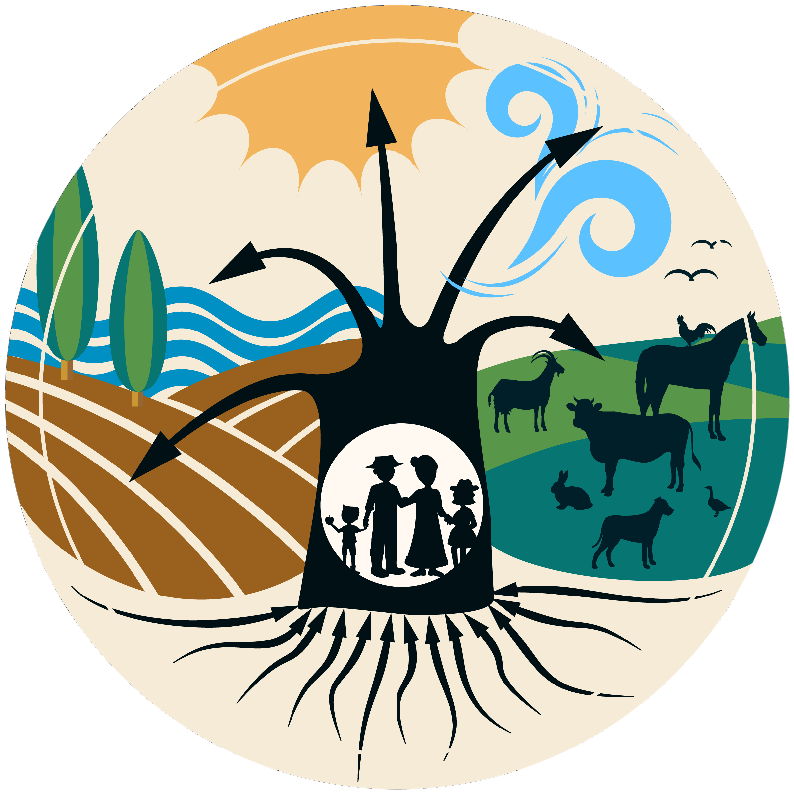
Definition
and principles
Agroecology is a way of life and the language of Nature, that we learn as her children. It is not a mere set of technologies or production practices.

Knowledge
and digitalisation
The diverse knowledges and ways of knowing of our peoples are fundamental to agroecology.We develop our ways of knowing through dialogue among them.

Food systems
transformation
We need to put the control of seeds, biodiversity, land and territories, waters, knowledge, culture in the hands of the peoples who feed the world.
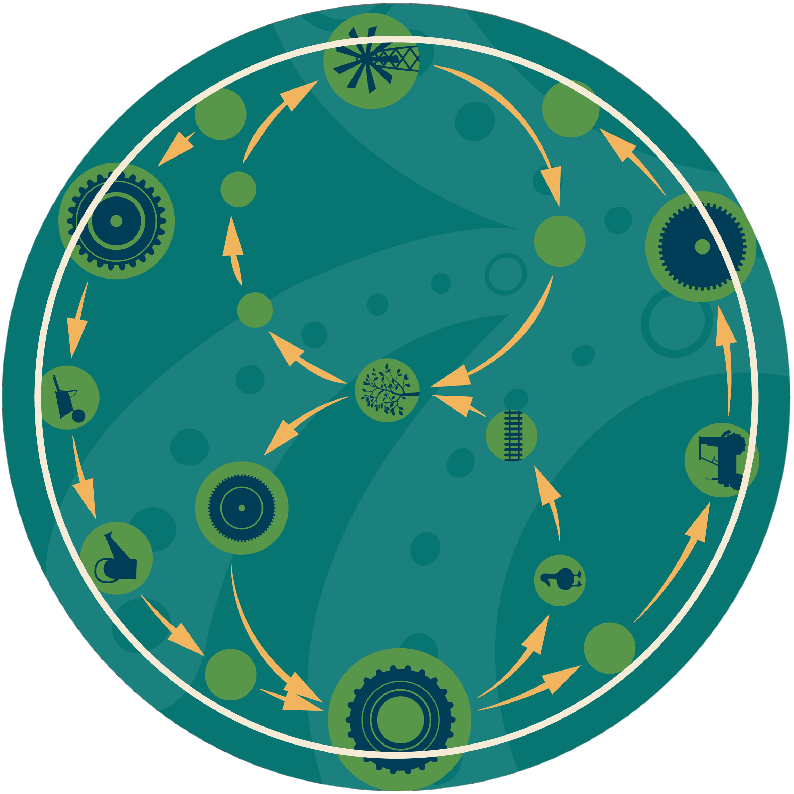
Ecological
production
Adoption of ecological principles in food production

Feelings
and care
The core of our cosmovisions is the necessary equilibrium between nature, the cosmos and human beings. We are but a part of nature and the cosmos.
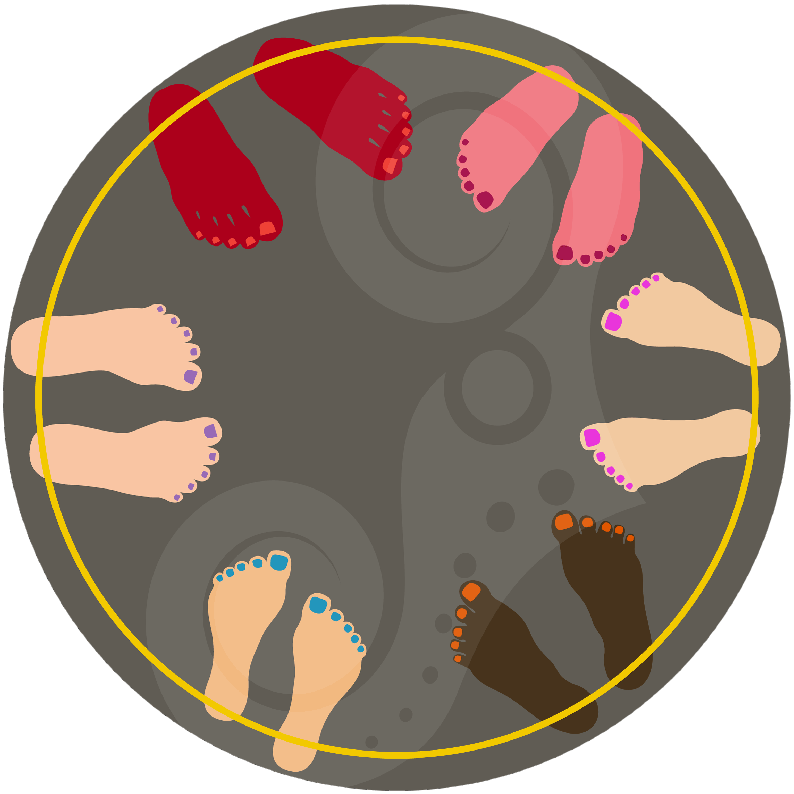
Women
are central
Women and their knowledge,values, vision and leadership are critical for moving forward, play a central role in Agroecology.
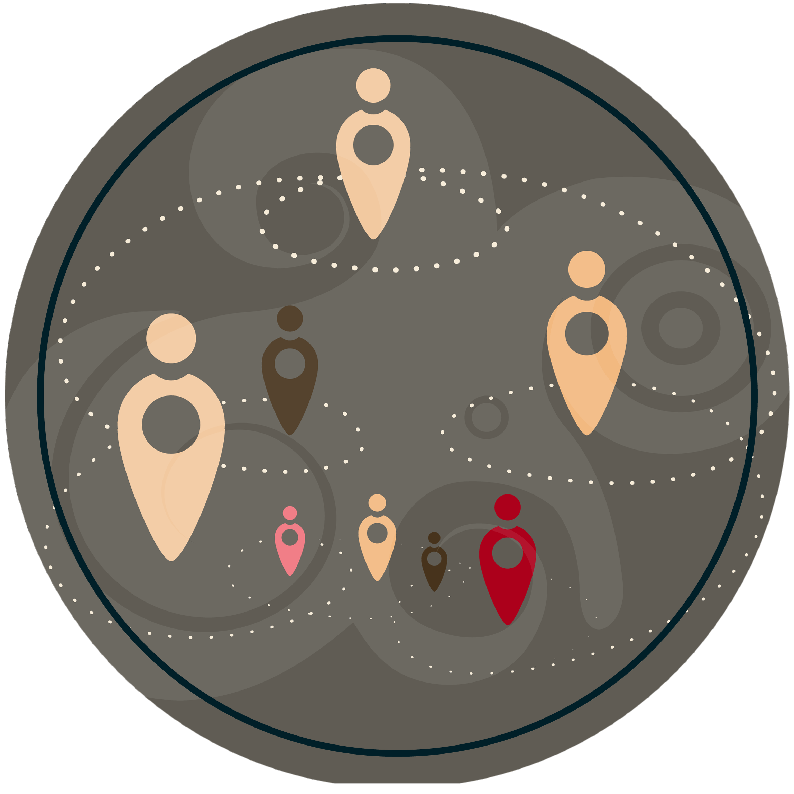
Territorial
approach
Territories are a fundamental pillar of agroecology. Peoples have the right to maintain their own spiritual and material relationships to their lands.
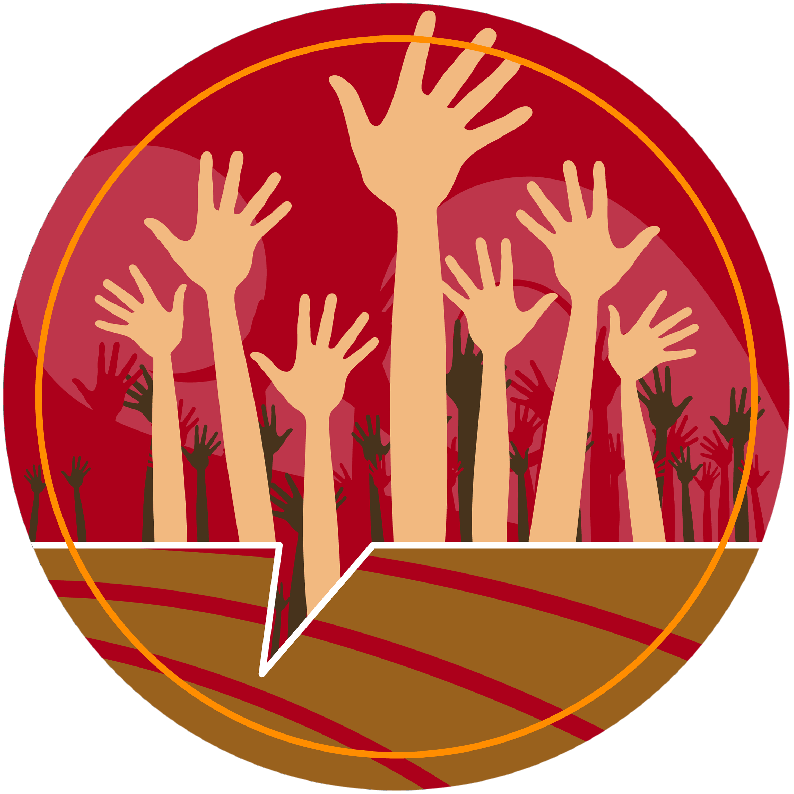
Collective
and organisation
Agroecology is based on collectives. Families, communities, organizations and movements are central to make agroecology alive.

Youth
are critical
Agroecology can provide a radical space for young people to contribute to the social and ecological transformation that is underway in many of our societies.

Rights
and commons
People are rights holders.
Collective rights and access to the commons are fundamental pillar of agroecology.

Self governed
markets
The autonomy of agroecology displaces the control of global markets and generates self-governance by communities.


